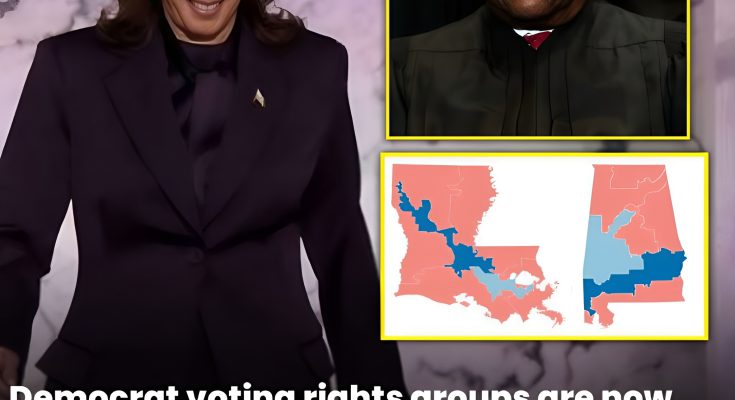Supreme Court Prepares to Rehear Louisiana v. Callais — A Landmark Case That Could Strike Down Race-Based Voting Districts and Give Republicans Up to 19 New House Seats
All eyes are on the Supreme Court as it prepares to rehear one of the most consequential voting rights cases in decades — Louisiana v. Callais. The October 15 hearing could redefine how congressional districts are drawn across the United States and potentially alter the balance of power in Congress for years to come. The case challenges Section 2 of the Voting Rights Act, a key provision that requires states to consider race when drawing district lines to ensure fair representation for minority voters.
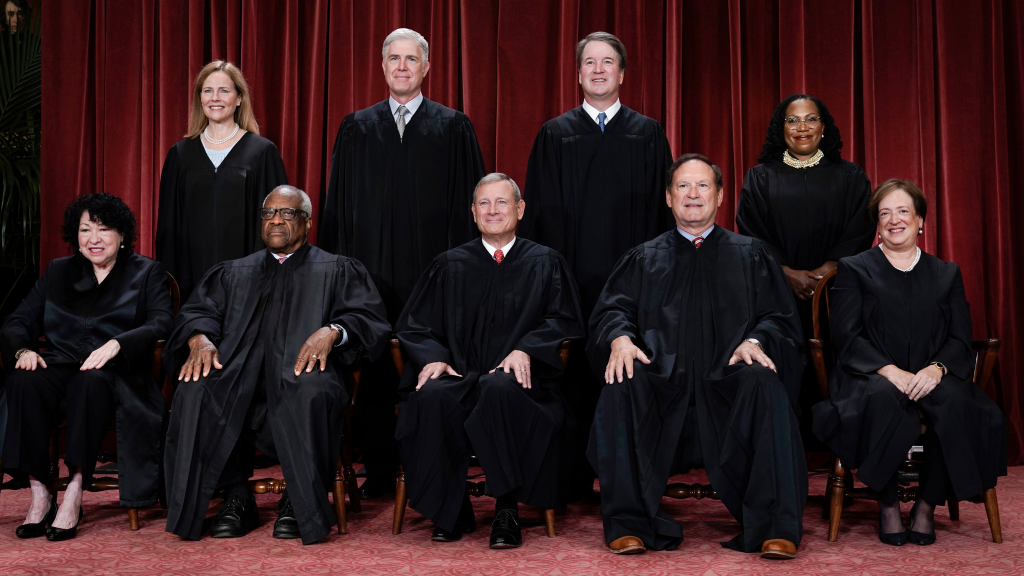
The law, originally passed in 1965 and renewed several times since, has long been seen as a cornerstone of civil rights protections. But critics argue that it has evolved into a political weapon — one that effectively forces the creation of race-conscious districts that favor Democrats. According to a recent POLITICO report, the Court’s conservative majority may now be poised to restrict or even overturn this practice, opening the door for widespread redistricting in several Southern states.
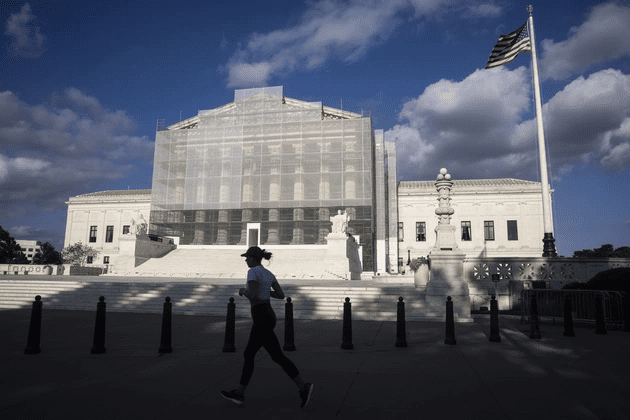
Analysts estimate that if the Court rules in favor of the plaintiffs, Republicans could gain as many as 19 additional House seats by 2026. The potential shift would significantly bolster GOP control in Congress, reshaping national politics in a way unseen since the early 1990s. States such as Louisiana, Alabama, Georgia, and Mississippi — where federal courts previously mandated “majority-minority” districts — could see new maps drawn with a focus on geography rather than race.
Supporters of the challenge argue that the move would restore fairness and common sense to the redistricting process. They claim that the current system, designed decades ago, no longer reflects the country’s changing demographics and unfairly groups voters by race rather than community interest. Conservative legal scholars have long questioned whether race-based districting violates the Constitution’s equal protection clause, with Justice Clarence Thomas repeatedly describing it as a “racial entitlement” that undermines true equality.
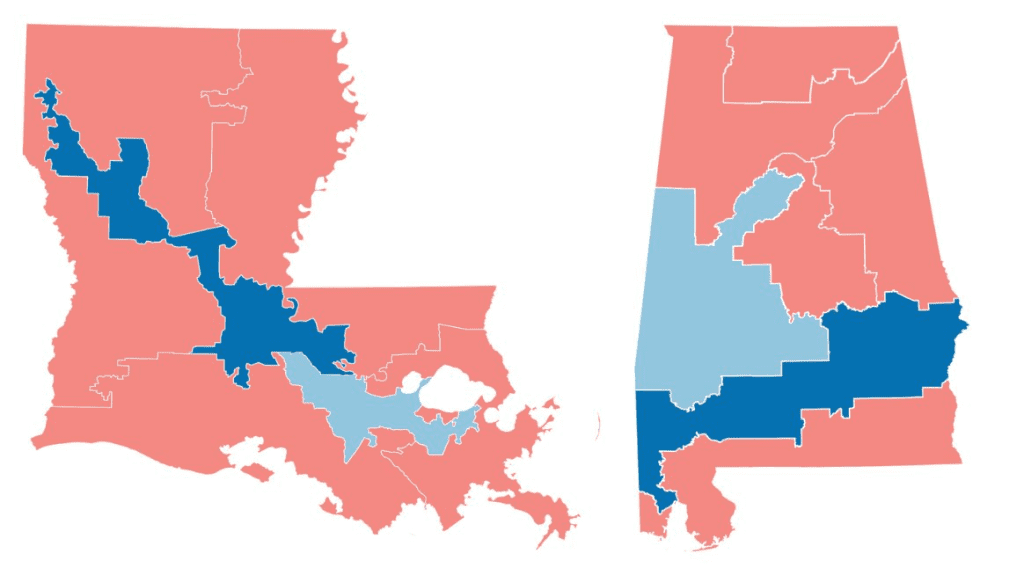
Opponents, however, warn that the consequences could be devastating for minority voters. Civil rights groups like the Fair Fight Action and Black Voters Matter Fund say the decision could lead to diluted minority influence, especially in regions where racial polarization in voting remains high. They argue that while the Voting Rights Act was born out of America’s painful history of discrimination, its protections remain as vital as ever — particularly in states where political power often shifts along racial lines.
Still, the case has triggered broader discussions about how far the Supreme Court should go in reshaping election law. While many Democrats see the challenge as a direct attack on hard-won voting protections, conservatives view it as a necessary correction to decades of judicial overreach. The debate underscores a deeper question facing the nation: Should race continue to be a factor in how political power is distributed?
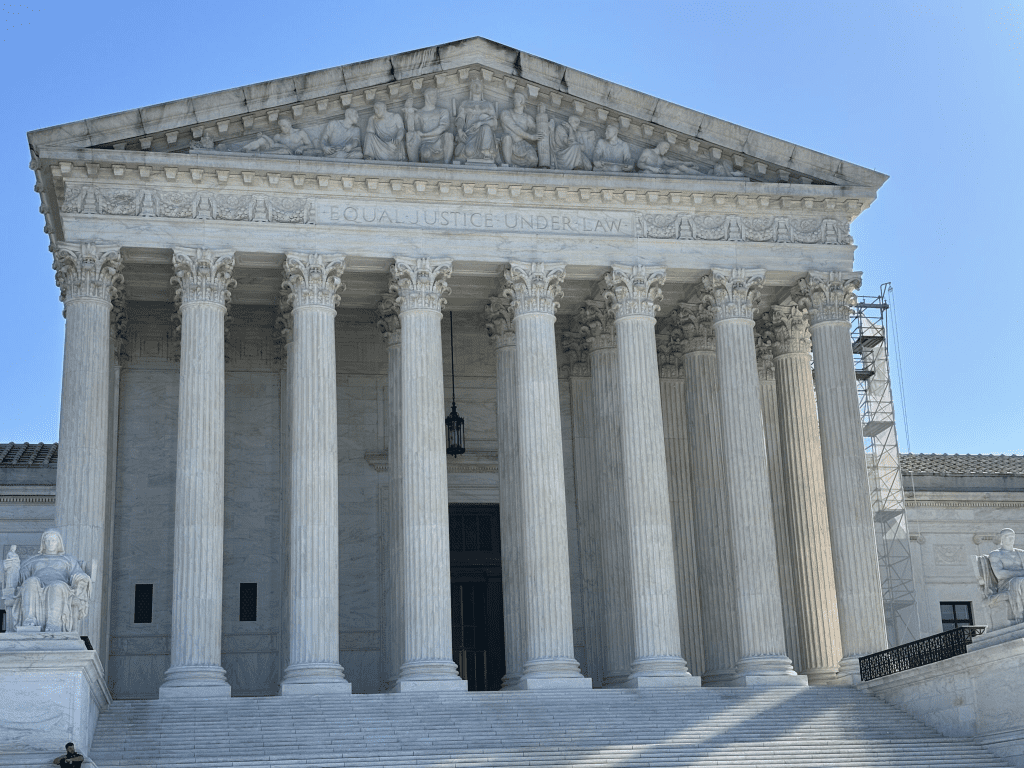
The Louisiana case comes at a time when election integrity, representation, and gerrymandering are already at the forefront of political debate. It also places renewed attention on the Court’s conservative bloc, including Justice Clarence Thomas, whose long-standing criticism of race-based policymaking has made him a central figure in the discussion. Legal experts suggest that a narrow ruling could strike a balance — limiting the use of race in redistricting without completely dismantling Section 2. But others believe the Court could issue a sweeping decision that redefines the Voting Rights Act altogether.
Whatever the outcome, the stakes could not be higher. A ruling that reduces the role of race in redistricting would likely shift power in Congress, possibly ensuring Republican dominance heading into the 2026 midterms. It would also reshape the political landscape in states that have been battlegrounds for decades. As the nation awaits the Court’s decision, one thing is certain — the outcome of Louisiana v. Callais will be remembered as a defining moment in the ongoing struggle between race, representation, and the rule of law.
